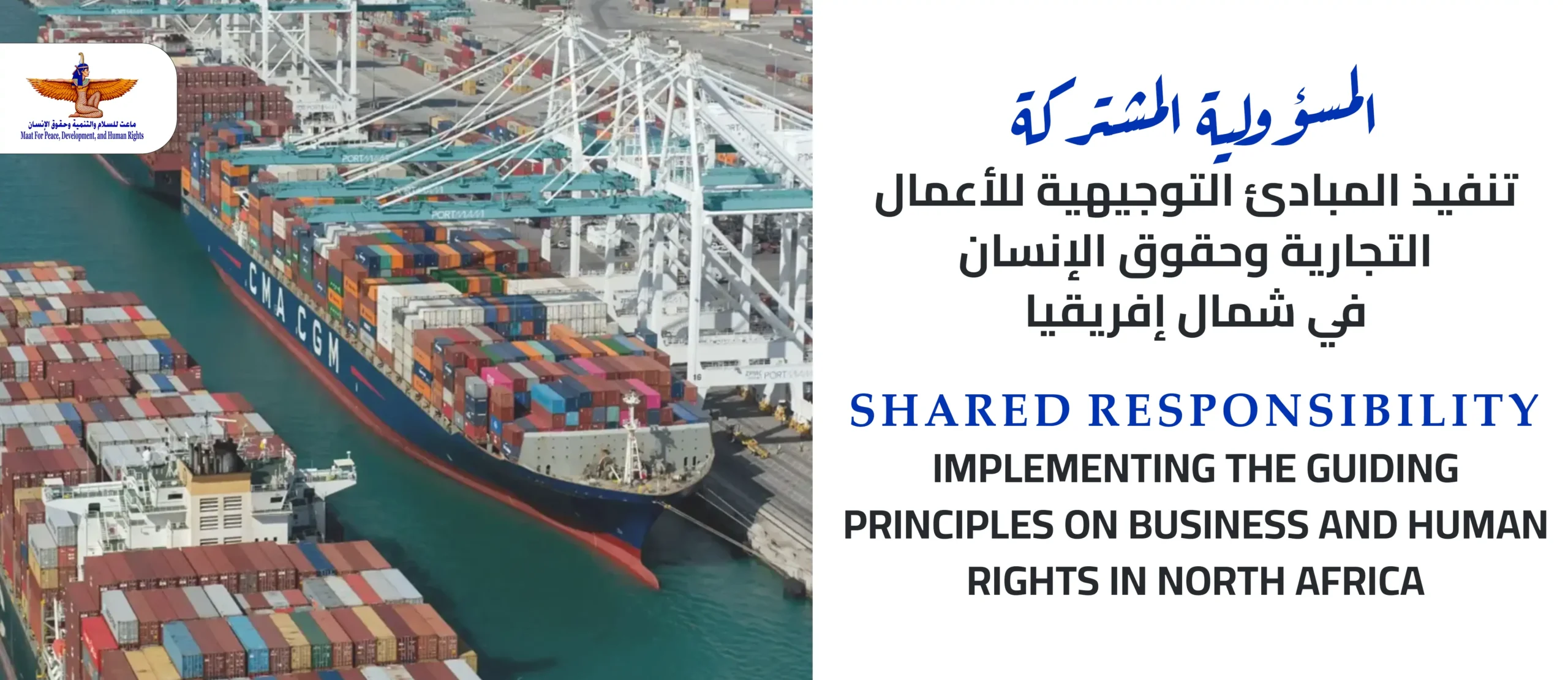Maat Calls on North African Countries to Implement Guiding Principles on Business and Human Rights
Okeil: All Stakeholders Must Be Involved in Addressing Challenges
Maat for Peace, Development and Human Rights has released a new study titled “Shared Responsibility: Implementing Guiding Principles on Business and Human Rights in North Africa.” This study examines measures aimed to promote the Guiding Principles on Business and Human Rights in North Africa, focusing on the opportunities to implement their three pillars: protection, respect, and remedy, as well as the challenges hindering their dissemination in North Africa.
The study provides a roadmap for enhancing the spread of the Guiding Principles in North Africa. It emphasizes that the effort to raise awareness and widely disseminate these principles is a shared responsibility among governments and transnational corporations. Under the first pillar, states are obligated to protect human rights in business contexts, while the second and third pillars require companies to exercise due diligence and respect human rights. This obligation can be effectively met through a participatory approach involving various stakeholders, including civil society and the private sector.
Notably, the Human Rights Council adopted these principles in 2011 under resolution No. 17/4. These principles advocate for integrating respect for human rights into business activities through a balanced mix of national and international measures, both mandatory and voluntary, to enhance business adherence to human rights. They complement the United Nations framework on protection, respect, and remedy. The Guiding Principles are grounded in recognizing states’ obligations to uphold human rights and fundamental freedoms, alongside the responsibilities of transnational corporations and other business enterprises to comply with all applicable laws and protect human rights throughout their operations and supply chains. They apply universally to all countries and business enterprises, whether transnational or otherwise.
In this context, Ayman Okeil, a legal expert and Chairman of Maat, stated that the Guiding Principles serve as a valuable tool to encourage companies to adhere to internationally recognized human rights standards and ensure the rights of affected individuals, particularly through the second pillar, which focuses on redress. Okeil noted that despite the widespread consensus surrounding these principles, this agreement has not translated into concrete actions in the North African region. This lack of implementation motivated Maat's participation in the 13th United Nations Forum on Business and Human Rights, held from November 25 to 27, 2024, in Geneva, where they aimed to promote the Guiding Principles developed by the Special Representative of the Secretary-General on human rights and transnational corporations. This was especially pertinent given the disparities in policies aimed at disseminating the principles across North African countries. Okeil emphasized the necessity of involving all stakeholders, including civil society and the private sector, in addressing the challenges that impede the dissemination and implementation of the Guiding Principles on Business and Human Rights in North Africa.

 |
 |
shortlink: https://maatpeace.org/en/?p=43911












